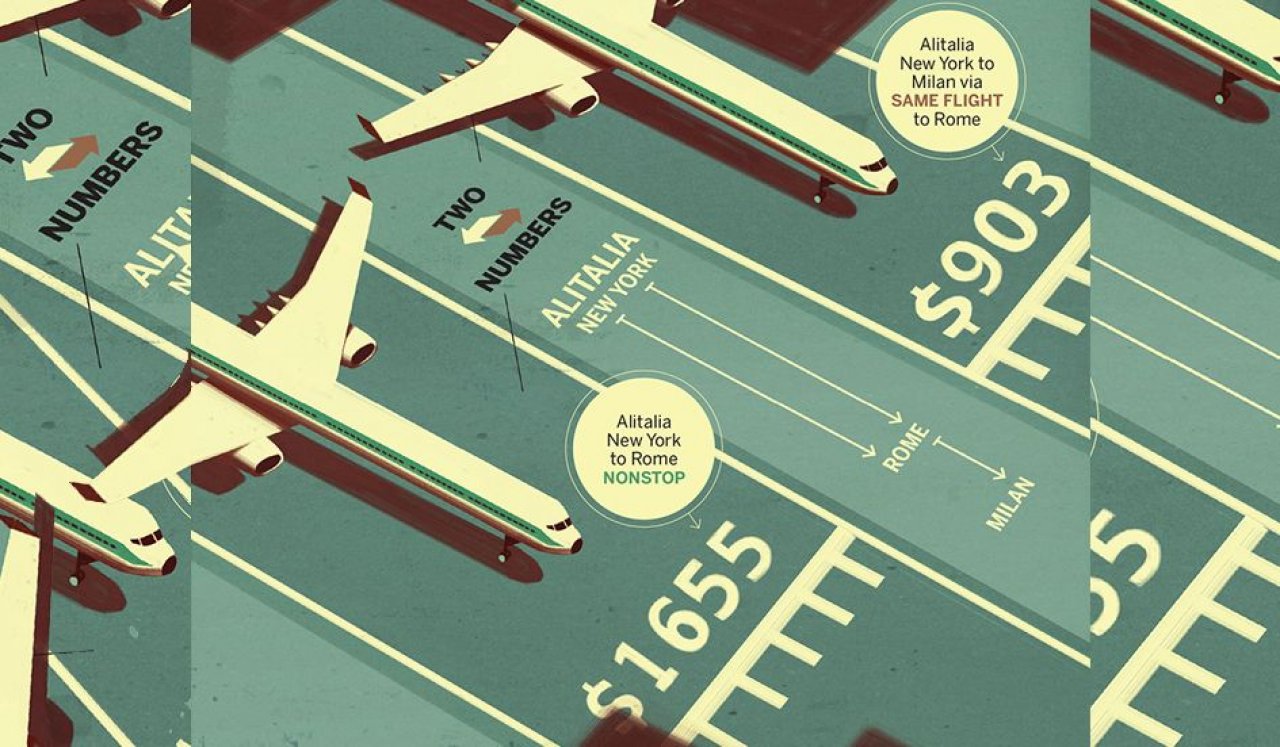Everyone knows airline pricing is based on supply and demand. Fares are more expensive during peak travel seasons like summer and to prime destinations like European capitals. So if a flight to Rome costs more than a flight to Milan, you'd think that demand for Rome must be higher or supply lower.
What's puzzling is that you can pay a high price to a given destination but a dramatically lower price for the exact same flight if you agree to go on to another destination.
Take Alitalia to Rome, for instance, for travel in August. A round-trip, economy flight directly to Rome leaving JFK at 10:05 p.m. on Alitalia 611 on August 5 costs $1,655 when booked on April 30. Compare that to $903 for a round-trip, economy ticket to Milan (stopping in Rome) leaving JFK on the exact same Alitalia 611 flight at 10:05 p.m. on August 5. So why is Alitalia willing to fly you to Rome for $752 less than it would otherwise, plus give you an extra one-and-a-half-hour flight to Milan?
Airlines have increased their profitability in recent years by segmenting the market for air travel and charging customers different prices for the same product. In this case, the market is segmented based on demand for direct flights. Airlines know most people prefer the shortest route to their destination, so they make customers pay up for the privilege of flying direct. (They also make it a little more inconvenient if you don't pay up for a direct flight, in order to encourage you to fly direct.)
In an unrestricted market, though, customers who bought the return ticket to Milan but really wanted to go to Rome would have the option of getting off in Rome. Yet airlines won't allow that. And they won't let you transfer your ticket to anyone else to complete the last leg of the trip. Those restrictions don't typically exist elsewhere in the economy. Think of a grocery store, for instance, where orange juice is on sale if you also buy a gallon of milk. If you don't like milk but really want cheap orange juice, you can throw the milk away, give it away or sell it to a friend. That's just not the case with air travel.
When prices become so obviously illogical, it may be time to revisit why air tickets can't be transferred or resold just like any other normal product. If the airlines are entitled to exploit the free market, shouldn't customers be allowed to do the same thing?



















